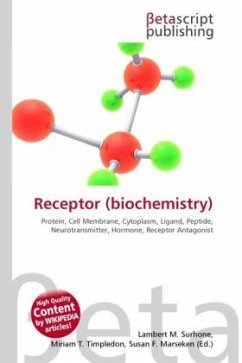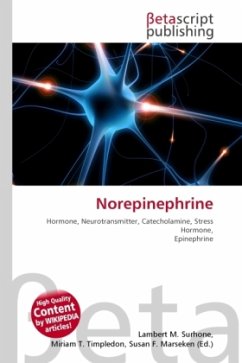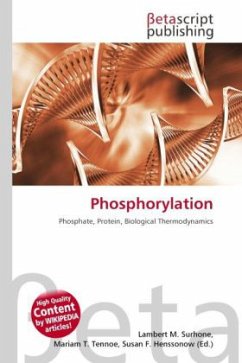High Quality Content by WIKIPEDIA articles! In biochemistry, a receptor is a protein molecule, embedded in either the plasma membrane or the cytoplasm of a cell, to which a mobile balls signaling molecule may attach. A molecule which binds to a receptor is called a ligand, and may be a peptide or other small molecule, such as a neurotransmitter, a hormone, a pharmaceutical drug, or a toxin. When such binding occurs, the receptor undergoes a conformational change, which ordinarily initiates a cellular response. However, some ligands (e.g. antagonists) merely block receptors without inducing any response. Ligand-induced changes in receptors result in cellular changes which constitute the biological activity of the ligands.
Bitte wählen Sie Ihr Anliegen aus.
Rechnungen
Retourenschein anfordern
Bestellstatus
Storno








